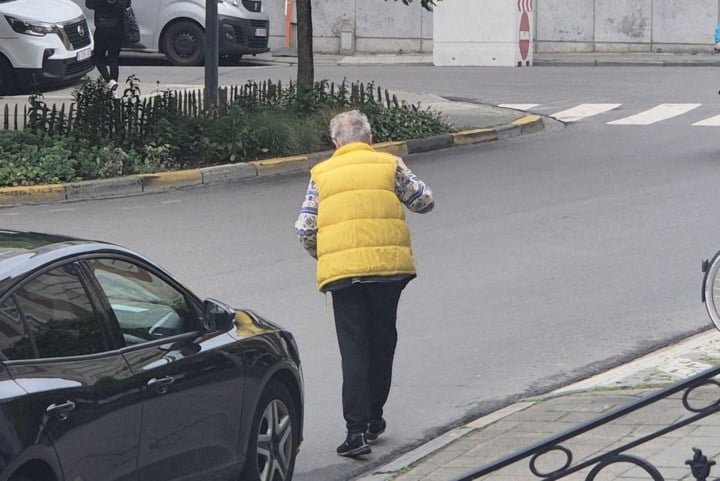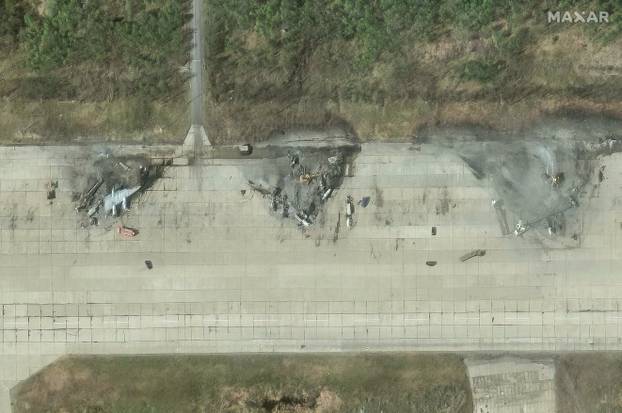Greening waste burners in danger due to extra taxes
/s3/static.nrc.nl/images/gn4/data133142838-c622dd.jpg)
Waste burning centers do not know what the cabinet wants from them. On the one hand there is Sophie Hermans, Minister of Climate and Green Growth (VVD), who wants to make custom agreements with the sector. The power stations would be their co2 Take out and transport to the North Sea. On the other hand, the government threatens to raise more than half a billion euros with tax measures, so that there is little money left to invest in co2 capture.
On Monday, the FNV started with strike actions because the sector fears a substantial reduction of the Dutch recycling and processing capacity of waste. Because waste is burned by the tax measures according to the sector twice as expensive as in neighboring countries, the fear is that an increasing part of the Dutch waste will cross the border to foreign sorting centers in trucks in the coming years. This makes investing in sustainability much more difficult. According to the FNV, thousands of jobs are also at stake.
It is all about what rather was called the plastic branches, a tax measure that would be imposed to make plastic more circular. Earlier it was the intention to place this tax with manufacturers of plastic items, but the spring memorandum showed that the government wants to collect this money on the back – at waste burners and landfills.
The industry already heard last year that the cabinet with an extra co2-Tax wants to raise 275 million euros annually an amount of (ascending to in 2030) from waste burners. Now about 290 million in extra taxes are threatening.
Due to the strike, the doors will remain closed for waste on Monday to Wednesday at thirteen sorting centers and waste burners. Personnel does not stop as a signal to employers, but to politics. « We tried it with a lobby and a petition, » says Hanan Yagoubi, director of FNV. « We are not listened to. If the processing of waste becomes so expensive that it moves abroad, that means: no more work here. »
On Monday, messages from Nijmegen from Hopen Garbage Bags that remained on the street appeared. If there is no political movement after Wednesday, the FNV will look at long -term actions.
A combustion installation is expensive and if we process less waste, our costs remain the same
Large emoters
There are twelve waste burners in the Netherlands. They burn household residual waste, industrial waste and what remains from other sorting processes (such as plastic that is difficult to recycle).
All installations use the processing of waste to generate energy in the form of electricity, steam and heat. For example for industry, district heating or the heating of greenhouses.
In January, the government announced that it wanted to make customized agreements with waste incineration installations. “Waste burners have an important role in waste management, but are also large emotors from Co2 And other environmentally pollutants such as nitrogen, « wrote climate minister Hermans in a letter to parliament.
EEW, a waste burner in Delfzijl, happens to open a test installation to CO this week2 to catch, says director Wilfred de Jager. But because of the stacking of taxes, he doubts whether there is also a large -scale co2-installation comes. « If process processing is made so much more expensive, waste simply crosses the border, » says De Jager. “A combustion installation is expensive, and our costs will not decrease if we process less waste. At the end of this year it would be decided to be large -scale CO2 To catch, but those plans are probably in the refrigerator, or may even be canceled. «
Also in other ways the extra load does not benefit the planet, De Jager fears. « We are at the industrial area in Delfzijl. We deliver all our heat and steam to the factories here. As a result, they can use less gas. But if waste from this region goes abroad, these factories will need more gas again. »
AEB in Amsterdam also fears that industry will not make it more sustainable, but leaves. « I fear that just half of the garbage trucks with garbage and industrial waste will disappear abroad, » says director Wim van Lieshout. « I think policymakers estimate that things will not go so fast. But I have been walking around in this sector for a long time, and I know how fast trucks with waste are moving abroad. In 2005, beneficial regulations in Germany crossed the border in Germany. »
AEB also had big plans for a co2-to build a purchase installation. « I haven’t pressed the pause button yet, » says Van Lieshout, « but I am very worried. The cabinet is pulling up a whole infrastructure. You don’t just get it back. »
CO2 This is being captured at waste burners would be transported via pipelines to empty gas fields in the North Sea. The so-called Aramis project should become Europe’s largest infrastructure for CO2-Storage. Waste burners should make an important part of the customer base of Aramis. « But they doubt whether they can still invest in sustainability, » says Bart van Leemput, chairman of the Waste Companies Association. “Those who do not have the waste streams cannot co -Co2 capture. I hear enough noises around me to also worry about a project like Aramis. ”
Recycling companies are also not happy with the extra taxes. With recycling, there are always remains that go to combustion installations. Recyclers will have to pay more for this in the future. This is not just about plastic recyclers: the trade association of paper and metal recyclers also express all their concerns.

:format(webp)/s3/static.nrc.nl/wp-content/uploads/2025/05/16125037/data131945215-ffb3dd.jpg)
:format(jpeg):fill(f8f8f8,true)/s3/static.nrc.nl/bvhw/wp-content/blogs.dir/114/files/2019/07/roosmalen-marcel-van-online-homepage.png)
/s3/static.nrc.nl/images/gn4/stripped/data133227375-e49eec.jpg|https://images.nrc.nl/OfCmw4ELdWxY3U-WzP_kS9p7N94=/1920x/filters:no_upscale()/s3/static.nrc.nl/images/gn4/stripped/data133227375-e49eec.jpg|https://images.nrc.nl/lR7DmIObH7P_IgUv2gg2A-sTmyk=/5760x/filters:no_upscale()/s3/static.nrc.nl/images/gn4/stripped/data133227375-e49eec.jpg)




